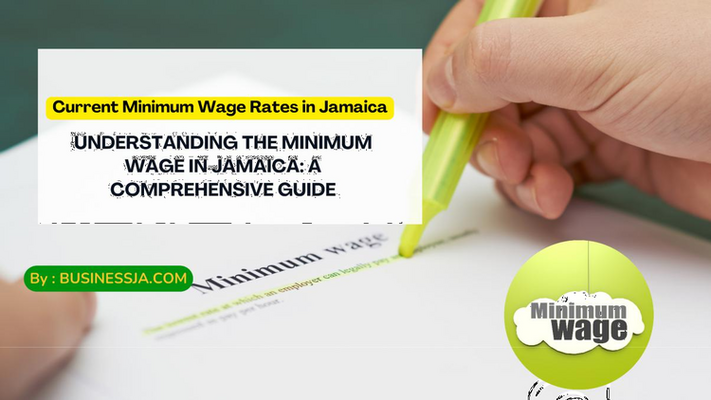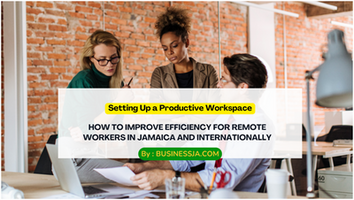
1. Introduction: Why the Minimum Wage Matters
The minimum wage is a fundamental labor policy that aims to ensure workers receive fair compensation for their work. In Jamaica, the minimum wage plays a crucial role in promoting social and economic justice, reducing income inequality, and protecting the rights of workers across various sectors. Understanding the intricacies of the minimum wage system is essential to grasp its significance in the Jamaican context.
2. The History of Minimum Wage in Jamaica
Jamaica's journey towards establishing a minimum wage began in the early 20th century. The first minimum wage legislation was introduced in 1938, following widespread labor unrest and calls for improved working conditions. Over the years, the minimum wage has evolved to address the changing economic landscape and the needs of workers in different sectors.
3. Current Minimum Wage Rates in Jamaica
As of June 1, 2023, the minimum wage rates in Jamaica have been revised and increased.
The new minimum wage rates are as follows:
For all workers, except security guards: JMD 13,000.00 per week.
For private security guards: JMD 14,000.00 per week.
These changes aim to provide better compensation for workers and improve their standard of living. It is important to note that these rates may vary depending on the specific sector or industry. For the most accurate and up-to-date information, it is advisable to refer to official sources.
For more detailed information on the revised minimum wage rates in Jamaica, you can visit the following website: National Minimum Wage Moves to $13,000 - June 1
Please note that the exact current rates may vary, and it is advisable to refer to the official sources or the mentioned websites for the most up-to-date and accurate information.
4. Factors Influencing Minimum Wage Determination
The determination of minimum wage rates in Jamaica takes into account several factors, including:
Cost of living: The overall expenses required to maintain a basic standard of living.
Inflation: The rate at which the general level of prices for goods and services is rising.
Productivity: The efficiency and output of workers, which influences their earning potential. Social considerations: The need to address income disparities and promote social welfare. A comprehensive analysis of these factors helps shape the decision-making process surrounding the establishment of minimum wage rates.
5. The Impact of Minimum Wage on Jamaican Workers
The minimum wage has a direct impact on the livelihoods of Jamaican workers, particularly those in low-income sectors. By ensuring a baseline level of compensation, the minimum wage helps reduce poverty, improve living standards, and enhance economic well-being. However, it is essential to strike a balance between fair wages for workers and the potential impact on business viability and employment rates.
6. Debates and Controversies Surrounding the Minimum Wage
The concept of the minimum wage has sparked debates and controversies in Jamaica and around the world. Opponents argue that higher minimum wages can lead to job losses, reduced hours, and increased costs for businesses. Proponents emphasize the importance of fair pay and argue that increased wages can stimulate consumer spending and boost the economy. Finding common ground between these viewpoints is crucial to developing effective labor policies.
7. The Relationship Between Minimum Wage and Cost of Living
The minimum wage and the cost of living are interconnected factors. As the cost of living rises, the minimum wage must be adjusted to ensure workers can afford basic necessities. Failure to align the minimum wage with the cost of living can result in financial hardships and income inequality. Regular assessments and adjustments are necessary to maintain the equilibrium between wages and living expenses.
8. International Comparisons of Minimum Wage Policies
Comparing minimum wage policies across different countries offers valuable insights into the effectiveness of various approaches. Jamaica can learn from international best practices and adapt them to its unique socioeconomic context. Analyzing minimum wage rates, enforcement mechanisms, and the impact on workers in other nations provides a broader perspective for policymakers and stakeholders.
9. The Role of Government in Ensuring Fair Wages
The Jamaican government plays a crucial role in ensuring fair wages and enforcing minimum wage laws. It is responsible for setting the minimum wage rates, monitoring compliance, and taking appropriate action against violators. Additionally, the government should collaborate with labor unions, employers, and other relevant stakeholders to address emerging labor market challenges and promote inclusive growth.
10. Frequently Asked Questions (FAQs)
FAQ 1: What is the purpose of a minimum wage?
The primary purpose of a minimum wage is to establish a floor for wages, ensuring workers receive a fair and livable income.
FAQ 2: How often does the minimum wage change in Jamaica?
The minimum wage rates in Jamaica are subject to periodic reviews, typically taking place every [specified period].
FAQ 3: Are there any exceptions to the minimum wage law?
Yes, certain exceptions exist, such as workers in specific industries or apprenticeship programs. However, these exceptions must adhere to specific guidelines outlined by labor regulations.
FAQ 4: Does the minimum wage differ across industries?
Yes, the minimum wage rates may vary depending on the industry and the category of work.
FAQ 5: How is the minimum wage enforced in Jamaica?
The Ministry of Labor and Social Security is responsible for enforcing the minimum wage regulations through inspections, investigations, and penalties for non-compliance.
11. Conclusion
The minimum wage in Jamaica is a vital tool in promoting social justice, protecting workers' rights, and reducing income inequality. By ensuring fair compensation, it contributes to the overall well-being of individuals and the nation's economy. It is essential for policymakers, employers, and workers to engage in ongoing dialogue to strike the right balance between wage fairness and economic sustainability. Continued efforts to evaluate and improve the minimum wage system will help create a more equitable and prosperous Jamaica for all.





